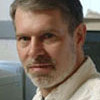
Charles S. Cockell
Författare till The Equations of Life: How Physics Shapes Evolution
Om författaren
Verk av Charles S. Cockell
Impossible Extinction: Natural Catastrophes and the Supremacy of the Microbial World (2003) 17 exemplar
Extra-Terrestrial Liberty an Enquiry Into the Nature and Causes of Tyrannical Government Beyond the Earth (2013) 2 exemplar
Associerade verk
Taggad
Allmänna fakta
- Vedertaget namn
- Cockell, Charles S.
- Andra namn
- Cockell, Charles
- Födelsedag
- 1967-05-21
- Kön
- male
- Nationalitet
- UK
- Utbildning
- University of Bristol
University of Oxford - Yrken
- microbiologist
astrobiologist
geomicrobiologist - Organisationer
- Open University
British Antarctic Survey
University of Edinburgh
UK Centre for Astrobiology
Astrobiology Society of Britain
NASA Ames Research Center (visa alla 8)
Earth and Space Foundation
Association of Mars Explorers
Medlemmar
Recensioner
Listor
RAS (1)
Priser
Du skulle kanske också gilla
Associerade författare
Statistik
- Verk
- 22
- Även av
- 1
- Medlemmar
- 233
- Popularitet
- #96,932
- Betyg
- 3.7
- Recensioner
- 5
- ISBN
- 56
- Språk
- 2














